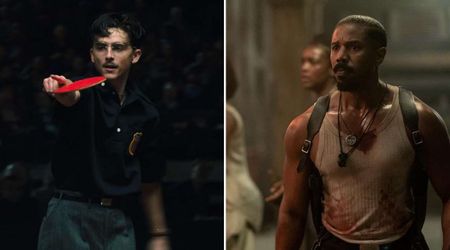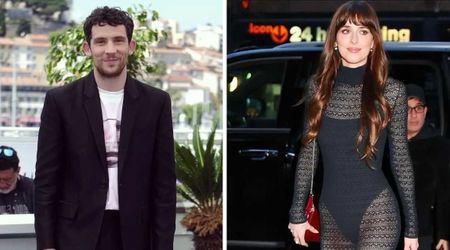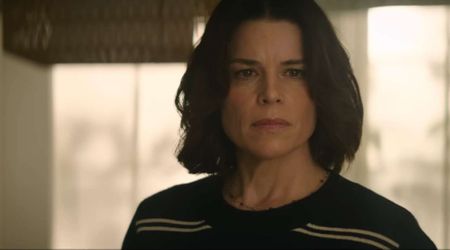Jafar Panahi's 3 Faces at Cannes: A haunting essence of regressive Iran portrayed without condescension

Jafar Panahi is back at it again, and this time with the graceful yet intense portrayal of his homeland and its latent misogyny and demonization of women - especially actresses - reflecting on the nation's patriarchal attitudes, via his latest venture, '3 Faces'.
The story revolves around a search for a missing girl which leads the protagonists to a small Iranian village and Panahi plays himself alongside veteran actress Behnaz Jafri (also playing herself). The latent mystery circulating the disappearance of the girl keeps festival-goers and arthouse audiences hooked on to the plot, and its screening in Cannes only benefits from that.
The story shows Panahi and Jafari arriving at the Turkish-speaking Azerbaijan region in a quest to find the girl, Marziyeh (Marziyeh Rezaei), after she had sent Behnaz a desperate video message. The video shows Marziyeh speaking about her family's disapproval of her dreams of becoming an actress - something that's left her so distraught that in the end, she hangs herself.
The speculation about what becomes of her isn't ascertained, because how can a dead woman send a video message at all? This ensures the mystery element as the deeply disturbing content of the video alarms Panahi and Jafri enough to embark upon what is seemingly a nerve-wracking thriller, but ends up being a rather leisurely paced ride throughout the environment where this girl was raised.
Panahi's affection for the uneducated locals in the Iranian villages is apparent throughout the film, especially heightened as his parents and grandparents grew up there. He showcases the rampant superstition and social stigma against aspiring artists like Marziyeh, but in no way is the portrayal condescending towards the inhabitants. Yet he manages to bring out how a regressive atmosphere like that can make it impossible for anybody to live there.
And it's not just Marziyeh who's subjected to the judgment, as in certain scenes even Behnaz, a successful actress, is herself forced to endure her share of sexism. Such as, when she leaves the shoot to go look for Marziyeh, her producers label her 'empty-headed'.
The movie plays out in casual exchanges with Jafar or Behnaz often just simply engaging in conversation with the villagers about their lives, the constant trait of his sympathy focused on especially the female characters, comes out.
There's also a third shadowy character individual named Shahrzad, who happens to be a retired actress living in that area. What is the most touching is how the three women - Marziyeh, Behnaz and even Shahrzad, all are from three different generations and yet united by the repression and anger they’ve each experienced at the hands of men.
Incidentally, Panahi has been restricted from traveling abroad by the Iranian government and was unable to make to the film's premiere at Cannes. If Panahi's film 3 Faces wins the Palme d'Or he will have then have in his kitty the European film festival equivalent of the Triple Crown - "Taxi" won the Golden Bear at Berlin in 2015, while his other film "The Circle" took the Golden Lion at the 2000 Venice International Film Festival.
Catch the trailer here:










